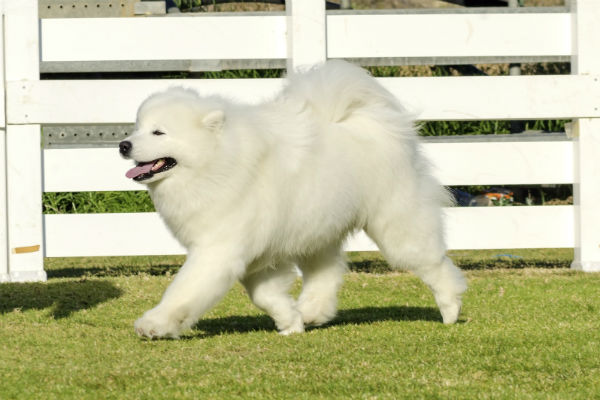
The benefits of fish oil for humans have been making nutrition news for the last several years. Over the years, as our diets moved away from natural foods and more toward processed foods, we lost the range of benefits we receive from omega-3 fatty acids. And although we need omega-6 fatty acids, our modern diet often has too many. The body needs both in balance, and the same is true for dogs. This is why including fish oil as a part of your dog’s nutritional routine is a great health benefit.
There are three types of dietary fats: saturated fats, monounsaturated fats, and polyunsaturated fats (PUFA). Omega fatty acids are found in PUFA, and they manufacture important hormones that are not naturally found in the body. Your dog needs polyunsaturated fats (PUFA), omega-3 and omega-6, in his diet for a variety of reasons:

Omega-3 is found primarily in cold-water fish, shellfish, plant and nut oils, and flaxseed. Omega-6, however, is common in processed foods and most grains. In many dog foods, the meat products come from corn-fed animals, and a variety of grains are used as fillers. Instead of natural oils from nuts, many dog food manufacturers use refined oils, like soybean oil, which are all high in omega-6. Your dog ends up with too much omega-6 and not nearly enough omega-3 fatty acids.
If the food you give your dog is high in grains, meat from non-grass-fed animals, and vegetable oils, fish oil is a good way to get him those omega-3 fatty acids his body needs. Depending on his general health and any change in his diet, fish oil supplements may
become part of a long-term plan or may just be a temporary boost to his diet. As with anything affecting your dog’s health, talk to your veterinarian about supplementing your dog’s diet with fish oils.
There are three types of fish oil on the market:

Over the long term, fish oil as a supplement to a grain-based diet will deplete vitamin E, so you may have to supplement that, as well.
Protect fish oil from heat, light, and air. Buy it in dark bottles and store in the refrigerator. Fish oils can become rancid since it’s susceptible to oxidation. If it has an “off” odor, throw it away. Rather than following dosage guidelines on the package, ask your vet how much fish oil is appropriate for your dog.
It’s difficult to feed your dog the completely natural diet his ancestors ate, and with so many grains and other processed ingredients in some of today’s dog food, fish oil may be just the supplement his diet needs. Buy only top-quality products and be sure to ask your vet for advice before starting your dog on supplements.
Our CannOmega product provides the highest quality of omega 3 fatty acids and full spectrum phytocannabinoids available. This unique combination provides unmatched Endocannabinoid System Support.